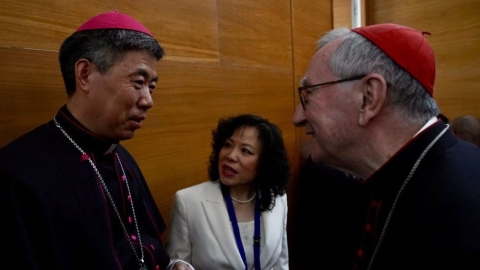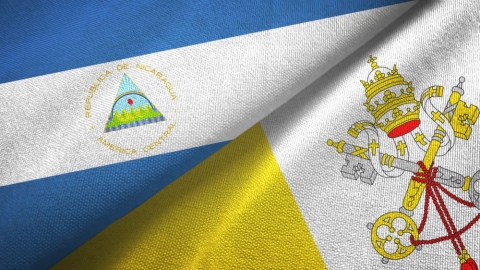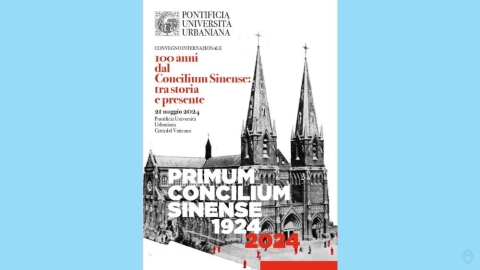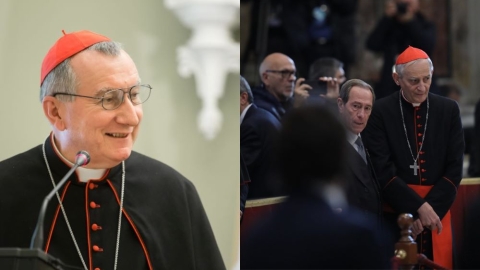Bishop Huonder’s Testimony: The Great Wound (3)

Below is a transcript of the English subtitles of episode three of the videos of Bishop Vitus Huonder's testimony broadcast on the Certamen YouTube channel.
9. Overcoming the Crisis
Today, in 2023 – I would like to come back to that – the Church is in one of the greatest crises in its history. It is a crisis within the Church. It covers all areas of the life of the Church: proclamation, liturgy, pastoral care, and government. It is a deep crisis of faith. That was our finding. Now the question: How can this crisis be overcome? Let it be said straight away, there is only one way out of the crisis: a return to those values and beliefs that one has abandoned or neglected or unlawfully discarded. The aim is to process the development of the past 70 years and to subject it to a revision. The Church needs renewal in her head and members. In particular, it requires the renewal of the hierarchy, the renewal of the episcopate, and urgently a return to sacramental and liturgical life. Sacramental life and the priesthood – hierarchy – are closely related.
The crisis, which everyone thought hit rock bottom in the 1990s, has rapidly fallen to an almost unfathomable level over the past decade. The year 2007, with the document Summorum Pontificum, was particularly hopeful. Meanwhile we must recognize that it was only a flash in the pan, very quickly smothered, so that today the crisis is greater than ever.
At this point we have to add a word of clarification about the motu proprio Summorum Pontificum, or rather on its repeal – because this papal document was of great importance to me in my conversations with the SSPX. Archbishop Georg Gänswein, the longtime secretary of Pope Benedict XVI, tells us the following: “On July 16, 2021, Benedict XVI discovered, reading L’Osservatore Romano, the information about the publication of Traditionis custodes on the use of the traditional Roman liturgy.… Traditionis custodes brings… a clear change of direction. It is a mistake because it puts at risk the quest for conciliation that began fourteen years earlier. It was wrong to forbid the celebration of Mass in the traditional rite in the parish churches. Because it is always dangerous to put a group of faithful in a corner, to give them the perception that they are being persecuted, and to make them feel that they have to save their own identity from the‚ ‘enemy‘ at any price.” Of course, it’s not just about conciliation, but pointing it out is valuable.
10. The Great Wound
The title for this recording is taken from an interview with Msgr. Gänswein about Pope Benedict XVI. It is related to a statement by the recently deceased Summus Pontifex on the apostolic exhortation Summorum Pontificum just mentioned. He [Benedict XVI] at that time wanted to heal the great wound that had gradually formed, voluntarily or not. As we read further: “As is evident from his writings… Ratzinger the theologian was at first sympathetic to liturgical reform…. But as he saw the developments that followed, he noticed the difference between what the Council wanted and what has been done with the liturgy by the Executive Commission. It became a battlefield of opposing fronts (camps), in particular when the celebration of the Latin liturgy became a bulwark to be defended or a fortress to be razed.”
The dialogue with the Society of Saint Pius X (SSPX) to him also had the goal of healing great wound – or better – help contribute to the healing of a great wound. Because it is still bleeding – it is bleeding at this moment. The Church suffers more than ever from this wound. This wound is getting bigger. It is becoming a poisonous boil that puts the whole body in a terrible state of fever. In this sense, Desiderio desideravi's reference (61) to the liturgy and its relation to the unity of the Church should be taken seriously:
“For this reason I wrote Traditionis custodes, so that the Church may lift up, in the variety of so many languages, one and the same prayer capable of expressing her unity. As I have already written, I intend that this unity be re-established in the whole Church of the Roman Rite.”
But the question arises whether this is the way to restore unity. By suppressing the authentic liturgy? This is precisely illegitimate, for this liturgy is part of the treasury of the faith of the Church by virtue of tradition and therefore as a part of divine law.
11. Persecution within the Church
With his statements, Pope Benedict XVI addressed a fact which unfortunately affects the whole Church today and which belongs in the description of the Church's situation in our day: the persecution within the Church. As St. Basil the Great (+ 379) complained about at the time of Arianism, we too have to admit today:
“Persecution has come upon us, right honorable brethren, and persecution in the severest form. Shepherds are persecuted that their flocks may be scattered. And the worst of all is that those who are being treated ill cannot accept their sufferings in proof of their testimony, nor can the people reverence the athletes as in the army of martyrs, because the name of Christians is applied to the persecutors. The one charge which is now sure to secure severe punishment is the careful keeping of the traditions of the Fathers. For this the pious are exiled from their homes, and are sent away to dwell in distant regions. No reverence is shown by the judges of iniquity to the hoary head, to practical piety, to the life lived from boyhood to old age according to the Gospel.… We are writing to those who know these things, for there is not a region of the world which is ignorant of our calamities.”
So said by St. Basil. [Letter 243]
Yes, this this description of the holy father and doctor of the Church can be truly applied, almost one-to-one, to the situation of the Church in the present-day.
The measures taken against the traditional liturgy, which have recently begun with Traditionis custodes, Desiderio desideravi and the accompanying documents, are nothing other than a hunt against those faithful who have reason to recognize in this liturgy the true and original worship of the Roman Church. It is unabashedly disregarded that they have a right to receive the sacraments in the form that has been passed down through the centuries. It is the same audacity that prevailed after the Council and that caused so much suffering at the time.
12. Question to Pope Francis
I would like to ask the Pope a question…Yes, what would I like to ask the Pope if he would receive me? I would like to ask the Pope why he takes the bread away from the children?
What prompts him to let them starve? What prompts him to let them perish? Because they have a right to this sustenance – I emphasize: to this sustenance – I emphasize: they have a right. It is the sustenance that their fathers ate and passed on to them. It's not their own recipe. They didn't put it together themselves – arbitrarily, so to speak. They accepted it from those who had faithfully passed it on. Why is the Pope taking it away from them and letting them starve? Why does he want to force them into something that is foreign to them? Our Lord said: “Or what man is there among you, of whom if his son shall ask bread, will he reach him a stone? Or if he shall ask him a fish, will he reach him a serpent?” (Mt. 7:9-10).
The point here is not even that the Pope gives something, but that he takes something away from his children, something vital: the Holy Sacrifice of the Mass of the Fathers.
When Archbishop Lefebvre was received in audience by Pope Paul VI in 1976, he made the following request: “Would it not be possible to authorize a chapel in the churches where people can pray as before the Council? Today everything is allowed for everyone: why shouldn't we be allowed something too?” At the time, he was not making some odd request. Even today it's not about any odd wish. It's about the Faith. It is about the supreme good of our Faith. It's really about our sustenance, the bread to survive.
So again the question: Why does the Pope take bread away from the children? What causes him to starve them, to let them perish?
I come back to January 9, 2015, to the Roman letter ordering the opening of talks with representatives of the SSPX. Despite adverse circumstances, I have fulfilled this mandate – and am still in the process of fulfilling it. So I would like to close with a request to Church authorities. I seek justice for the Society of St. Pius X. The study of their situation calls for this petition. It would be fitting for the Church to offer, as in other cases, an apology to this Society. This has even been done in cases of phantom graves. This is not about phantoms, but about living people, about souls who have a right to the pastoral care that was granted them by the Church before the Council and that continues to exist afterwards as a permanent claim. It's not about a privilege or an indult, it's about a right.
It would do well for Church authorities to express, together with this apology, their gratitude for the work of the SSPX, and to express their appreciation of this deeply Catholic work without any ifs or buts.
Related links
(Source : Certamen/FSSPX.Actualités – FSSPX.Actualités)






